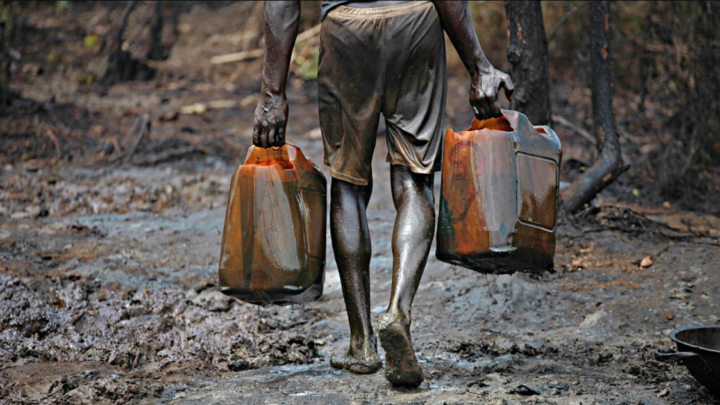In the span of one week, from November 18 to 24, Nigeria experienced a staggering 226 incidents of crude oil theft, as revealed by data from the official X account of the Nigerian National Petroleum Company Limited (NNPCL), now reported by InfoStride News.
During this period, illicit activities were rampant across various oil-producing states, with 39 cases of illegal connections in Abia and Rivers states. The efforts to curb unauthorized refining operations led to the discovery and destruction of 77 illegal refineries in Rivers, Delta, Bayelsa, and Imo states. Additionally, 21 instances of pipeline vandalism were identified in Rivers and Delta states.
Security agents in Delta state uncovered nine vessels engaged in AIS infractions, while 55 wooden boats transporting stolen crude were apprehended. Notably, 13 vehicles, including a truck disguising stolen crude as animal feed, were seized along the Warri-Patani road in Ughelli North, Delta state.

The comprehensive report outlined the occurrence of five oil spill sites and five illegal storage sites in Rivers, Delta, Abia, and Bayelsa states. One community issue and one act of vandalism were also documented during this period.
Law enforcement efforts were acknowledged, with 35 individuals involved in crude oil theft apprehended during the review period. Of the recorded incidents, nine took place in the Deep Blue water, while 34, 104, and 79 incidents occurred in the Western, Central, and Eastern regions, respectively, within the Niger Delta’s oil-producing areas.
In a statement dated November 22, Umar Ajiya, the Chief Financial Officer at NNPC Limited, emphasized the company’s unwavering commitment to combating criminal activities that threaten the nation’s energy security. Ajiya highlighted collaborative efforts within the industry that have led to the prevention of numerous illegal activities targeting crude oil and pipeline products, resulting in the apprehension of those involved.
He underscored the primary objective of the security operation, which is to address two major challenges: crude oil theft and pipeline vandalism. The overarching goal is to boost the country’s crude oil production, enhance revenue generation, fortify energy security, and ultimately stimulate economic growth and prosperity. Ajiya expressed the company’s determination to win the war against crude oil theft and increase Nigeria’s crude oil production capacity.
As of November 23, following an agreement in June 2023 that mandated Nigeria to meet its OPEC oil production quota by November 2023 or face a reduction in quota (1.38 mbpd), reports indicated that both Nigeria and Angola were initially resistant to proposed changes to their baselines. However, by November 24, both countries expressed a willingness to reach an agreement on baselines.
On Tuesday, November 28, chief OPEC correspondent Amena Bakr shared on her official X account that the required production level for Congo and Nigeria might be updated to equal the average production achievable in 2024, as assessed by three independent sources (IHS, Wood Mackenzie, and Rystad Energy).
Support InfoStride News' Credible Journalism: Only credible journalism can guarantee a fair, accountable and transparent society, including democracy and government. It involves a lot of efforts and money. We need your support. Click here to Donate
